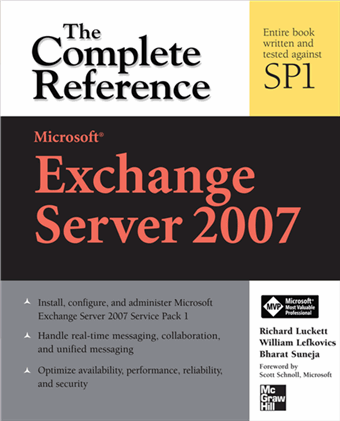I was able to modify this script I wrote a while back for general use.
What it does: Lists mail-enabled groups in a domain including following attributes:
- Group Name
- Group type (Security/Distribution group)
- Description (if the description field is populated)
- Manager
- Members
What needs to be added...
- If the group only receives from authorized senders (msExchRequireAuthToSendTo = TRUE)
- list of authorized senders - if "Only from" is selcted in Exchange Gneeral (authOrig)
- list of users who cannot send to this group - if "from Everyone except" is selected in Exchange General (unAuthOrig)
Download the zip file from here
Update 3/19/2007:
- Added option /f: to add output file path, creates output in a file:
ListDistGroups.vbs /f:"c:\MyOutputFile.csv"
- Option to suppress console output: /s:y
- Option to get help: /help
- Changed link to point to exchangepedia.com/blog
What it does: Lists mail-enabled groups in a domain including following attributes:
- Group Name
- Group type (Security/Distribution group)
- Description (if the description field is populated)
- Manager
- Members
What needs to be added...
- If the group only receives from authorized senders (msExchRequireAuthToSendTo = TRUE)
- list of authorized senders - if "Only from" is selcted in Exchange Gneeral (authOrig)
- list of users who cannot send to this group - if "from Everyone except" is selected in Exchange General (unAuthOrig)
Download the zip file from here
Update 3/19/2007:
- Added option /f: to add output file path, creates output in a file:
ListDistGroups.vbs /f:"c:\MyOutputFile.csv"
- Option to suppress console output: /s:y
- Option to get help: /help
- Changed link to point to exchangepedia.com/blog

 Exchangepedia Blog is read by visitors from all 50 US States and 150 countries world-wide
Exchangepedia Blog is read by visitors from all 50 US States and 150 countries world-wide



15 Comments:
it would be a useful script if every single new line didnt show up in a msgbox window. How do you send the output to a text file?
- If your default scripting engine is Wscript, it will behave that way. You can either use it as follows (invokes the Cscript engine which will output to the shell/command-line rather than in Windows boxes):
cscript ScriptName.vbs
..or you can change your computer's default scripting engine to Cscript:
Cscript //H:script //S
- Also note, the script was updated today, it now takes a file name/path as an option and produces output to file:
ScriptName.vbs /f:"C:\MyOutputFile.Csv"
Helo Bharat, I actually search a solution to list of authorized senders - if "Only from" is selected in Exchange General. Do you have any idea when your script will support this? thanx and congratulations. z0rmus
To anonymous poster above:
>>a solution to list of authorized senders - if "Only from" is selected in Exchange General.
For Distribution Groups only, or for all recipient types?
This script was working find and not it is stopping. What does this error mean?
listDistGroups.vbs(67, 13) (null): 0x80005000
I would appreciate any help on this.
I'm having the same issue as Bruce. Just a different line where my error is. Any suggestions?
I'm getting this same error:
listDistGroups.vbs(67, 13) (null): 0x80005000
Great script, thanks for that. I've been trying to get a bit more of a specific result...list -display name, First name, Last name, primary email address- of each member in any/all OU's.
Can you help with that?
Cheers
Craig
Hi,
Great script, thank you, only i am having a slight problem, i get the following error message after it has been running for a bit,
C:\listDistGroups.vbs(67, 13) (null): 0x80005000
It also does not output to a text file.
Any help would be greatly appreciated.
If you get the 0x80005000-error you probably have groups with a displayname containing a "/"
Hi Bharat, I'm running trhe script and it looks like it goes successfully, but it doesn't output the CSV file to the C drive.
Can you help?
Thanks.
Dudie
To get an output file you need to run the script from the command line.
ListDistGroups.vbs /f:"c:\MyOutputFile.csv"
I've tried running it with the /f: filename and /s:y switches and it still comes up with a message box ...
Also, is there a way to list more than 2000 groups ?
Thanks
I've tried running it with the /f: filename and /s:y switches and it still comes up with a message box. could you please help me to get the output in a file. thanks
This was awesome and very helpful to me. The output worked exactly as stated however, the suppression /s:y did not work--but that wasn't a big deal to me. Thank you very much for the post.
Post a Comment
Links to this post:
Create a Link
<< Home